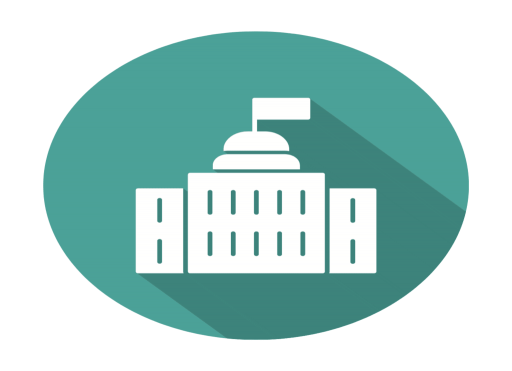

Goa Aided October Activity – ACTIZENSHIP
EXPECTED OBJECTIVES
- Students will be able to define ACTiZENSHIP.
- Students will be able to identify one's responsibility as an Actizen.
EXPECTED OUTCOMES
1. Students will describe Actizenship and one’s responsibility as Actizen in their own words
SKILLS AND VALUES
Skills - Analytical thinking, collaboration, and Communication.
Values - Responsibility, Commitment
SESSIONS’ OVERVIEW
| S. No. | Session Details | Estimated Time Required |
| 1. | Step 1: Introduction
Step 2: Debate Step 3: Debrief |
45 min |
MATERIAL REQUIRED
Pen, sheets, notebook
STEPS OF THE ACTIVITY
Session 1: For a 45 min session Step 1-3
Step 1 - Introduction
Estimated Time: (10-12 min)
1. Introduce the class with the theme using the introduction section.
2. Read out the given problem statement to students.
There is a large amount of garbage and littering in a public park in a city, which is causing several problems and needs a solution. There is no proper garbage disposal area in the park. Everyone around the park is facing this issue but they throw garbage in the same park.
3. Ask students the following questions.
- Who do you think is at fault in the given situation? Citizens or the concerned authorities? Why?
- What do you think most people would do?
Step 2 - Debate
Estimated time: 30 min.
1. Tell the student we will play out a Debate on – “Should Citizens resolve the problem by themselves”. One group A will be “For”, and another group B will be “Against”.
Note: In case the class size is large, teacher can create two groups for “For” and two groups for “Against”
2. Hand over the cues to each group/side of the class as given in Annexure 1. Inform them they will get 10 mins to prepare the points to debate.
Note: Teacher can involve the office bearer make written copy of the Cue cards before the session or display it during session if Smart board facility is available. These clues are only for reference points for the given issue. Students can come up with their own points.
3. Ask the students to follow the debate rules given below:
a. When one team puts the point forward, the other team will listen to them.
b. When one point is put forward by the team, the response to be on the same point. At that time, new point without connection should not be spoken by the responding the team.
4. Ask the groups to begin debating on the issue. Teacher can randomly select which group can put forward the first point to debate. Tell them we will debate for 20 minutes and conclude.
Note: Teacher needs to ensure that during debate the discussion & its spirit stays focused on collaboration with local authorities.
Step 3 – Debrief
Estimated time (5-7 min)
Ask students the following questions to conclude the debate.
1. What have you learnt from the given activity?
2. Who according to you is an ACTiZEN?
3. How can we practice being Alert, Informed and Active citizens in our daily life?
Reflection Sheets, Activity Report & Feedback Form
Teachers kindly fill in the feedback form, remind office bearers to fill activity report and remind students also to fill up the reflection sheets.
ANNEXURE
CUES: -
For: (Group A)
1. The issue of garbage and litter in the park needs to be addressed immediately. As it is causing a harmful impact on the environment and people’s health. It is also causing foul smell. Since, citizens are troubled with it, so they should act.
2. Lot of insects, flies, mosquitoes are breeding, and stray animals are getting attracted to the garbage. People using or staying nearby the park can fall sick. In interest of everyone’s health, people need to take quick action.
3. There is no system for garbage disposal or waste management in that area so impacted people need to find solution how garbage disposal can be managed. More dustbins can be arranged, or waste segregation.
4. Citizens can reach out to garbage collectors to come regularly to collect garbage. They can pay to garbage collector for coming twice as this is serious issue.
5. Citizens must take responsibility while throwing the garbage. They should throw at right place and avoid dumping more garbage if dustbin is already full. They should also be aware of the adverse impact of it.
6. Citizens are responsible for the reducing waste generation. For example, like bottles can be used at home to store stuff.
7. It is essential to solve the issue, and people are accountable for their actions and dispose of garbage properly.
8. The park is a public space and people use it then why authorise should clean it. People need to keep it clean and free of litter to ensure that they can enjoy it and they should play their duties about it.
Against: (Group B)
1. It is the function of the concerned authorities to manage the garbage and it is the duty of citizens to help in this waste-management. Both need to work together continuously to keep the issue in check.
2. In interest of public health, people using the park or staying nearby the park should bring this issue immediately to concerned authorities’ notice. In collaboration they can get it resolved to avoid spread of ill effects by mosquitoes & other insects breeding.
3. Citizen’s action alone, can be only temporary solution, but if they collaborate with concerned authority and find the solution of this problem it can be resolved for good. The authorities can arrange for different types of dustbins to segregate waste, also arrange for additional dustbins, etc.
4. Citizens can reach out and collaborate with concerned authorities to help oversee and monitor that garbage collectors are coming regularly. They can bring to authorities notice about need of garbage collection to be twice in a day & it can be arranged.
5. Authorities and citizens should collaborate to spread awareness messages. They can decide what can be the fine impositions in case rules are not followed to keep the park zone litter free.
6. Citizens can Volunteer with authorities to run awareness campaigns for waste reduction, recycling, cleanliness drive, etc.
7. Concerned authorities should be proactive to solve the issue and need to take responsibility for management of garbage disposal issue for benefit of the people. But alongside citizens also must follow their duties. So, both need to fulfil their responsibilities for the issue to be resolved.
8. To ensure that such problems don’t arise again & again, authorities and citizens should engage proactively. Authorities should set systems and procedures and citizens should help ensure that they are followed.






